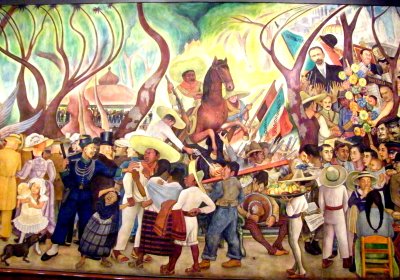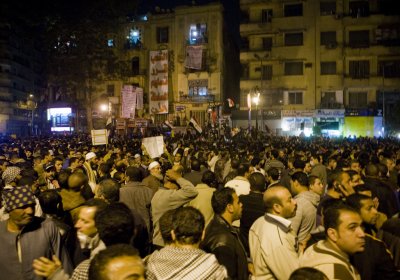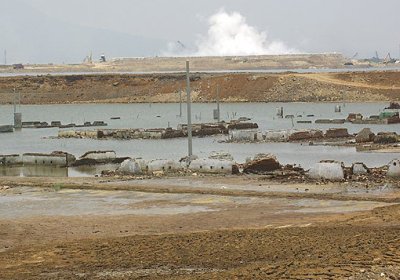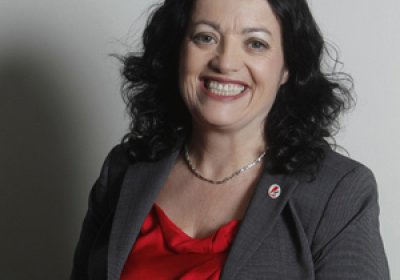“There is money.” That was the major election campaign slogan of the Panhellenic Socialist Movement (PASOK) in October 2009.
906
Despite the crushing victory of incumbent Cristina Fernandez de Kirchner in the October 23 Argentine presidential elections, the campaign and results also demonstrated that an important social and political left alternative continues to exist.
The unpredictable consequences of the global economic crisis and the reaction by Cristina’s mixed social base to future policy decisions may prove important challenges to her new government.
Israeli officials suspect that France-based megabank BNP Parisbas has pulled out of Israel due to pressure from Palestine solidarity groups, even though the bank itself has denied this.
Israeli paper Haaretz reported on 24 November: “The powers that be are furious at BNP Paribas for shuttering its operations in Israel, and suspect it is acting due to Arab and anti-Israeli pressure in France, the bank’s home base.
Alameda Park is Mexico City's languid space for lovers and open-air ballroom dancers: the gents in two-tone shoes, the ladies in finery and heels.
The cobbled paths undulate from the great earthquake of 1985. You imagine the fairground sinking into the cobwebs of cracks, its Edwardian organ playing forlornly. Two small churches nearby totter precariously: the surreal is Mexico's facade.
“Preliminary results from Congo’s presidential election show incumbent Joseph Kabila leading,” Associated Press reported on December 3. For several reasons, this is not surprising news from the Democratic Republic of the Congo (DRC).
Cricket is on the verge of a corruption-induced implosion, yet you wouldn’t know in Australia. As far as Australian cricket administrators are concerned, it is the end of the world as they know it and they feel fine.
Despite more and more revelations coming out about corruption in cricket, it was still shocking for many to hear former Indian batsman Vinod Kambli claim that something was “amiss” in the semi-final of the 1996 World Cup.
Egyptians went to the polls on November 28 in the first round of parliamentary elections since dictator Hosni Mubarak was overthrown in February.
Large numbers of people turned out to vote despite calls from some revolutionary groups for a boycott of a process seen as a means to legitimise the rule of the Supreme Council of Armed Forces (SCAF).
The elections were held amid ongoing protests against the military regime by thousands of pro-democracy activists in Tahrir Square in Cairo and elsewhere across the country.
Because there is a better way A safer way to touch and cradle humanity Because understanding starts with understanding And understanding that is just the start.
Britain's High Pay Commission has just published a report about the trend in salaries paid to the highest 0.1% of earners, and it seems that someone must have made a terrible mistake.
Because, in this time of unprecedented debt and sacrifice, the government's making daily statements such as "in order to keep old age pensions viable, we are insisting from now on that the elderly contribute towards their upkeep, by going on the game for just two days a week”.
Australian energy company Santos has met determined resistance to its coal seam gas operations in Australia. It is less well known that Santos was one of the companies responsible for a monumental environmental catastrophe in Indonesia in 2006. The accident drowned villages in the Porong subdistrict of Sidoarjo in mud, and displaced up to 50,000 people.
The Community and Public Sector Union (CPSU) has condemned the federal government's planned increase in the “efficiency dividend” imposed on the Australian Public Service.
“Efficiency dividend” is a euphemism for funding cut. In the 2012-13 financial year the “dividend” will be 4%, based on the assumption the public service will increase its efficiency by 4% during the year.
Such cuts have been continuing for many years. In 2011-2012 the “efficiency dividend” is 1.5%.
Most environmentalists would agree consumerism and consumer culture put too heavy a burden on the planet. Consumer spending is central to the economy, which is why economists and governments also pay it close attention.
But most mainstream economists say endless economic growth, which implies limitless consumption, is both possible and desirable. This ignores how it helps fuel our ecological problems.
Today, most things sold on the market are made to be thrown out and replaced. A big part of economic activity is made up of selling products “designed for the dump”.
- Previous page
- Page 3
- Next page









